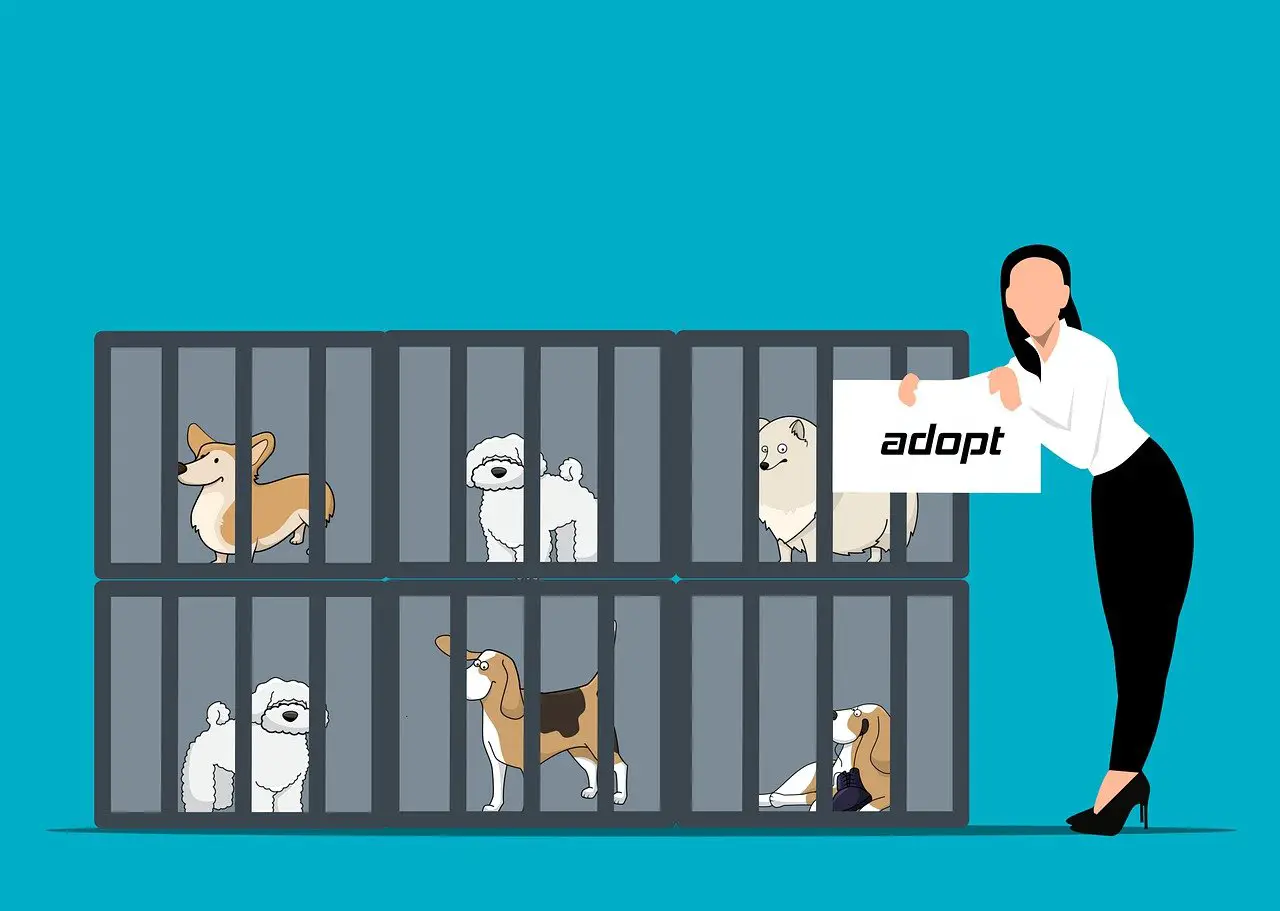So, you find yourself in a situation where you’re considering giving a baby up for adoption. It’s not an easy decision to make, but rest assured, there are resources and support available to guide you through the process. In this article, we’ll explore the steps you can take to navigate the adoption process and ensure that your baby finds a loving and nurturing home. Remember, you’re not alone in this journey, and there are compassionate individuals ready to assist you every step of the way.
Deciding to Give Up Your Baby for Adoption
Considering Your Options
When faced with an unexpected pregnancy, it can be overwhelming to consider all the options available to you. Decision-making takes time, and it’s important to remember that you are not alone in this process. Take the time to explore your feelings and circumstances to determine what is best for both you and your baby.
Understanding Your Reasons
Every person’s situation is unique, and it’s essential to understand your reasons for considering adoption. Whether it’s financial instability, lack of emotional readiness, or other personal circumstances, acknowledging your reasons can help you make a well-informed decision. Reflecting on your desires and what you believe is in the best interest of your baby can provide clarity during this difficult time.
Seeking Counseling and Support
Emotional support plays a crucial role throughout the adoption process. Professional counseling can provide a safe space to express your thoughts, fears, and doubts. Counselors can offer guidance, help you explore your options, and support you in making the best decision for you and your baby. Additionally, reaching out to trusted friends, family members, or support groups can provide a network of understanding individuals who can uplift and assist you.
Researching and Gathering Information
Being well-informed is essential when making such a life-changing decision. Take the time to research adoption laws, processes, and resources available in your area. Gather information about different adoption agencies, their services, and their track records. Being knowledgeable will empower you to make informed choices and ensure you find the right agency to guide you through this journey.
Choosing an Adoption Agency
Determining Your Preferences
Before selecting an adoption agency, it’s important to determine your preferences and priorities. Consider whether you prefer a local or national agency, whether you want an agency that specializes in certain types of adoption, and what services are important to you. Clearly defining your preferences will help you narrow down your options and find an agency that aligns with your needs.
Researching Different Agencies
Once you have determined your preferences, begin researching adoption agencies that meet your criteria. Look for agencies with a good reputation, positive client testimonials, and a history of successful adoptions. Check if they are licensed, accredited, and adhere to ethical standards. An agency’s experience, transparency, and commitment to supporting birth parents are all important factors to consider.
Meeting with Potential Agencies
After narrowing down your choices, schedule meetings with potential adoption agencies. These meetings provide an opportunity to know more about the agency’s staff, their values, and the services they offer. Don’t hesitate to ask questions about their experience, the types of adoptive families they work with, and the support they provide before, during, and after placement. Building a rapport with the agency’s representatives is crucial for a positive adoption experience.
Reviewing and Comparing Agency Options
After meeting with different adoption agencies, take the time to review and compare your options. Consider the agency’s reputation, the level of support they provide, and how they align with your preferences. Take note of any differences in fees, legal expertise, available resources, and the overall feeling of comfort and trustworthiness. Making a pros and cons list can be helpful in weighing your options and making an informed decision.
Understanding the Adoption Process
Learning about Legal Requirements
Before delving deeper into the adoption process, it’s crucial to understand the legal requirements involved. Familiarize yourself with the laws and regulations specific to your jurisdiction regarding consent, parental rights termination, and adoption procedures. This knowledge will ensure you navigate the process with confidence and protect your rights throughout.
Understanding Types of Adoption
Adoption comes in different forms, each with its own set of considerations. Understand the differences between open, semi-open, and closed adoptions. In an open adoption, you maintain communication and contact with your child and the adoptive family. In a semi-open adoption, contact is mediated through an agency. In a closed adoption, contact is minimal or non-existent. Reflect on your preferences and what level of post-placement contact you feel comfortable with to choose the right path for you and your baby.
Preparing for the Home Study
A home study is an essential part of the adoption process. It involves an evaluation of your home environment, personal background checks, and interviews conducted by a social worker. The purpose of a home study is to ensure that the child will be placed in a safe and stable environment. Prepare for the home study by organizing your living space, gathering necessary documents, and being emotionally ready for the inquiries that may arise.
Creating an Adoption Plan with the Agency
Once you have selected an adoption agency, work closely with them to create a personalized adoption plan. This plan outlines your preferences, desires, and expectations for your baby’s adoption. It allows you to have a say in selecting the adoptive parents, deciding on the level of contact, and ensuring your wishes are respected throughout the process. Collaborating with the agency will help create a smooth and well-managed adoption journey.
Making the Adoption Plan
Deciding on Open, Semi-Open, or Closed Adoption
When making the adoption plan, one of the key considerations is the level of contact you desire after placement. Deciding on open, semi-open, or closed adoption involves weighing your comfort levels, personal boundaries, and the benefits you see for your child. Open adoption allows for ongoing communication, while semi-open adoption provides a structured approach. Closed adoption maintains a higher level of privacy and confidentiality. It’s important to choose the level of contact that feels right for you and your baby.
Choosing Adoptive Parents
Selecting the adoptive parents is a deeply personal decision. Work closely with your adoption agency to share your preferences for the type of family you envision for your child. Consider their values, lifestyle, financial stability, and desire to provide a loving and nurturing environment. Review profiles and have the opportunity to meet potential adoptive parents to assess the connection and sense of trust that is crucial for such a significant decision.
Establishing Post-Placement Contact or Visitation
Within your adoption plan, clearly define the level of contact or visitation you are comfortable with after the placement. Openly communicate your desires with the adoptive parents and the agency to ensure everyone is on the same page. Establish guidelines and boundaries, such as frequency of contact, communication methods, and potential visits. The goal is to create a plan that respects everyone’s needs and maintains a healthy relationship between you, the adoptive parents, and your child.
Legal Considerations and Paperwork
Contacting an Adoption Attorney
To navigate the legal aspects of adoption, it’s crucial to consult with an adoption attorney. They will guide you through the necessary legal procedures, ensure your rights are protected, and assist with the completion of required paperwork. An experienced adoption attorney will help you understand the legal implications, consent requirements, and any potential challenges that may arise.
Understanding Consent and Termination of Parental Rights
Consent and termination of parental rights are significant legal steps in the adoption process. Understanding the requirements and implications is vital. Work closely with your adoption attorney and agency to ensure you meet all the necessary criteria and that the process is carried out ethically and legally. Remember that consent is typically irrevocable after a certain period, so it’s essential to be fully informed before making this important decision.
Completing the Necessary Legal Documents
Throughout the adoption process, various legal documents will need to be completed. Your adoption attorney will guide you through each step and ensure that all required paperwork is completed accurately and in a timely manner. These documents include consent forms, relinquishment papers, and any necessary court filings. Working closely with your adoption attorney will facilitate the legal process and help provide peace of mind.
Taking Care of Yourself Emotionally
Processing Your Feelings and Grief
Giving up a baby for adoption can be an emotionally challenging experience. It’s crucial to give yourself permission to feel, process, and heal. Allow yourself to grieve and seek support from counselors, support groups, or trusted friends and family members. Acknowledging and expressing your emotions in a healthy way is an important part of the healing process.
Seeking Counseling and Support
Throughout your journey, ongoing counseling and support are essential. Professional counselors can provide a safe and non-judgmental space to discuss your thoughts, concerns, and emotions. They can offer coping strategies, guidance through the adoption process, and help you navigate the challenges that arise. Remember, seeking support is a sign of strength and an investment in your well-being.
Taking Time for Self-Care
When considering adoption, it’s easy to overlook self-care. Taking care of your physical and emotional well-being is crucial during this emotionally taxing time. Engage in activities that bring you joy, prioritize rest and relaxation, and engage in healthy coping mechanisms. Nurturing yourself will enable you to make empowered decisions and be emotionally available throughout the adoption journey.
Developing Coping Strategies
Adoption is a journey that requires resilience and emotional strength. Develop coping strategies to help you navigate the various stages of the process. This may involve mindfulness practices, journaling, art therapy, or engaging in hobbies that bring you solace. Each person’s coping mechanisms are unique, so explore different strategies and find what works best for you.
Maintaining Privacy and Confidentiality
Discussing Privacy Preferences with the Agency
Privacy is a crucial aspect to consider when planning an adoption. Have an open and honest discussion about your privacy preferences with the adoption agency. Clearly communicate what information you are comfortable sharing, both during the adoption process and afterward. It’s important to feel in control of your privacy and ensure that your boundaries are respected.
Establishing Boundaries with Family and Friends
Maintaining boundaries with family and friends is equally essential. Clearly communicate your wishes and establish limits regarding sharing details about the adoption process. This will help protect your emotional well-being and maintain the privacy you desire. Openly discuss your expectations and request that your loved ones respect your boundaries during this highly personal journey.
Navigating Social Media and Online Privacy
In today’s digital age, it’s important to be mindful of your online presence and the potential impact it may have on your adoption journey. Consider the information you share on social media and how it may affect your privacy and the confidentiality of the adoption process. Discuss guidelines with your adoption agency regarding online communication and explore the use of private or anonymous profiles to maintain your privacy.
Preparing for the Birth and Hospital Stay
Creating a Birth Plan
A birth plan outlines your preferences for the labor and delivery process. It can include details such as who you want present during the birth, pain management options, and your wishes for the immediate postpartum period. Collaborate with your adoption agency and medical professionals to ensure your birth plan reflects your desires while taking into account any legal or logistical considerations.
Informing the Medical Staff about the Adoption
It’s important to inform the medical staff treating you about your adoption plan. Provide them with a copy of your adoption plan, birth plan, and any necessary legal documents. This will ensure that everyone involved is aware of your wishes, respects your decision, and can offer appropriate support during your hospital stay.
Considering the Role of Adoptive Parents during Birth
When planning for the birth, you may choose to involve the adoptive parents to varying degrees. Discuss your preferences with them and determine their desired level of involvement during the labor and delivery process. Some birth parents choose to have adoptive parents present, while others prefer a more private experience. Consider what feels comfortable and supportive for you and communicate these expectations.
Developing a Hospital Visitation Plan
Developing a hospital visitation plan with the adoptive parents can help ensure a respectful and harmonious experience for everyone involved. Discuss and establish guidelines for visitation hours, the level of involvement, and post-birth procedures such as naming, breastfeeding, or skin-to-skin contact. Open communication and collaboration between all parties will foster an environment of trust and respect during this emotional time.
Completing the Adoption
Signing Legal Consent for Adoption
Once your baby is born, you will typically sign legal consent for the adoption. This is a critical step that should be approached with careful consideration. Ensure that you fully understand the legal implications and that you are making a decision that aligns with your desires, beliefs, and the best interest of your child. With the support of your adoption attorney and agency, you can confidently navigate this step.
Understanding Revocation Periods and Finalization
After signing consent for adoption, there is typically a revocation period during which you have the option to change your mind. Understand the specific duration of this period and any necessary steps to ensure compliance. If you choose to proceed with the adoption, the finalization process will take place. This involves a court hearing where the adoption is legally recognized and your parental rights are terminated. Be prepared for this final legal step and consult with your adoption attorney for guidance.
Participating in the Finalization Hearing
The finalization hearing is a significant milestone in the adoption process. Attend the hearing as required by your jurisdiction and celebrate this momentous occasion. The hearing is an opportunity to reflect on your journey, acknowledge your strength and selflessness, and witness the legal completion of the adoption. It’s a time to honor your decision and embrace the possibilities that lie ahead for both you and your child.
After the Adoption
Emotional Transition and Adjustment
After the adoption is finalized, it’s natural to experience a range of emotions. Take the time to acknowledge and process your feelings throughout the transition and adjustment period. Celebrate your courage and strength, and allow yourself space to grieve and heal. Seek ongoing support from counselors, support groups, or trusted individuals who can understand and empathize with your experience.
Maintaining Post-Placement Contact or Visitation
If your adoption plan includes post-placement contact or visitation, it’s important to maintain open lines of communication with the adoptive parents. Collaborate on a plan that works for both parties and respects the boundaries established during the adoption process. Regularly update the adoptive parents on your well-being and inquire about your child’s milestones and growth. Nurturing this relationship can bring comfort and reassurance as you navigate your ongoing connection.
Seeking Continued Support and Counseling
The journey doesn’t end with the finalization of adoption. It’s important to seek continued support and counseling to navigate the emotions and challenges that arise after placement. Stay connected with your adoption agency, join support groups, or engage in individual counseling as needed. Surrounding yourself with positive support systems will help ensure your emotional well-being and provide guidance as you navigate life beyond adoption.
In conclusion, deciding to give up your baby for adoption is a deeply personal and complex decision. By considering your options, understanding the adoption process, and seeking the support you need, you can empower yourself to make the best decision for both you and your baby. Remember, you are not alone in this journey, and there are resources available to assist you every step of the way.





